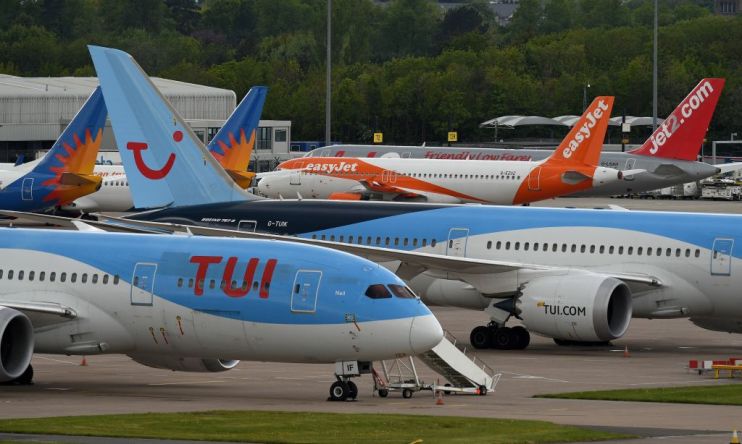Are vaccine passports inevitable to keep the global travel industry afloat?

Transport secretary Grant Shapps today gave the clearest indication yet that people could soon be required to prove they had been vaccinated in order to travel abroad.
Speaking to the BBC, he confirmed talks had been held with his counterparts in the US and Singapore over creation of an international vaccine certification system.
Such a system – more generally known as a “vaccine passport”, despite Shapps’ insistence that the government would not use the term – has been widely touted as the best way to get travel going again.
Countries like Denmark and Sweden have already committed to such a system.
Several airlines, such as Emirates and Etihad, are already trialling a form of the digital documentation, as is international airline body IATA.
“It is a key element to certify that things have been done according to certain requirements everywhere,” said IATA’s director general Alexandre de Juniac.
Another such scheme, the AOK Pass, has been developed by health and security firm International SOS, and is already being used by a number of airlines, such as Alitalia, on specific routes.
International SOS chief executive Arnaud Vaissié told City A.M. that his company’s pass, which allows users to download a document onto a regular phone app, was a “logical way out of the travel interruption”.
How do they work?
Vaissié described how his firm’s pass works. “Labs in the country of departure download the result of the test or a vaccination onto an app in the form of a QR code.
“This QR code is then scanned and recognised at the airport, which recognises the result and allows the passenger to pass through to check-in.
“We’ve also developed a solution for people without phones, so they can get a business card with the same QR code on it which does the same thing.”
The beauty of the app, Vaissié said, is that it doesn’t need to be retooled – you can simply upload whatever document that is required by the country of departure or arrival.
“It’s totally flexible and therefore can be adapted to whatever regulations the country of arrival has decided that they want to have in place.”
In addition, he added, such a system does not involve accessing a traveller’s health records – a major concern for opponents of the scheme.
Before the Open: Get the jump on the markets with our early morning newsletter
Vaissié is himself dismissive of concerns about privacy. “The reality is that when you go to Africa, you get asked to have a Yellow Fever certificate. No one is saying that that is impacting your personal privacy.”
His app also uses blockchain technology, which, Vaissie wryly pointed out, was considerably more secure than traditional paper certification.
A global system?
Shapps’ comments this morning suggested that the government was looking at a global system, but some are more sanguine on this point.
Given how long it has taken to come up with a stringent border policy in the UK – and some would argue that that’s not yet been managed – the idea of the whole world agreeing to one system seems like wishful thinking.
But that’s where a solution like the IATA pass, which the body says can be used in combination with other systems, could come in.
As Chris Southworth, director general of the International Chamber of Commerce, said, the global solution is having an app itself – not the specific type of document required.
“We need a means to travel more and to get trade going again, and we have the tech to do it. We have testing, we have vaccines, and we have this app.
“What we need now is the political will to make this happen. Once we have that, we think it can be put in place pretty quickly.”
He added that the UK should use its position as chair of this year’s G7 meeting to push the vaccine passport agenda.
Unlocking cities?
Both Vaissie and Southworth said the pass could have an enormous impact closer to home as a means of allowing people back to music venues, sports stadiums, bars and restaurants safely.
Such a pilot scheme, using the AOK Pass, is currently underway in Girona in Spain. Users who can show a negative test using the app are allowed entry into public exhibitions, business events, restaurants, and football matches.
Given the changes that people have already adjusted to this year, Southworth believes such plans are entirely logical.
“If you were at a concert or a sports match, why would it not be a good idea to tap your phone when you come in to show that you’ve been tested or vaccinated. Then we can get the economy going again. There are all sorts of crossover benefits, but we have to get the system in place first.”
At the moment, however, plans for a wider rollout of such a pass in the UK look unlikely – with vaccines minister Nadhim Zahawi saying “that’s not how we do things here”.
One way or another, it seems increasingly likely that the vaccine passport is an idea that is here to stay.
And anyway, former PM Tony Blair’s a big fan – and based on past form, that means the “international vaccination certificates” will likely be rolled out in weeks.